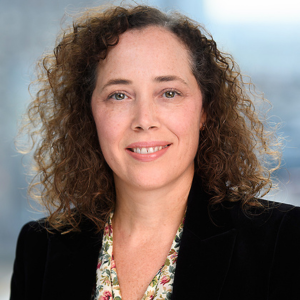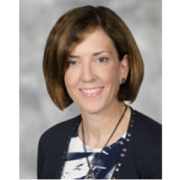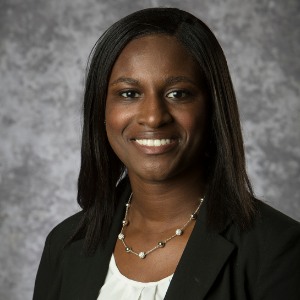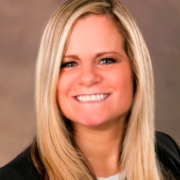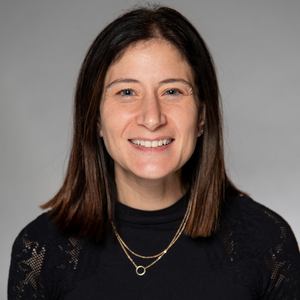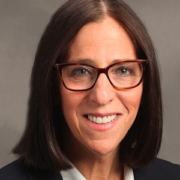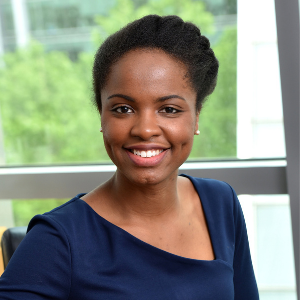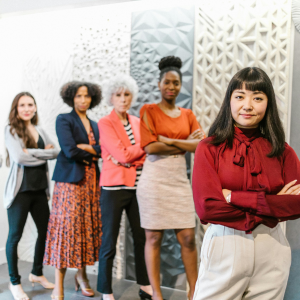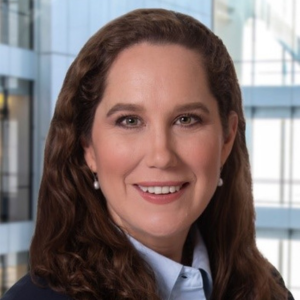Susan Nickey: Executive Vice President and Chief Client Officer of HASI
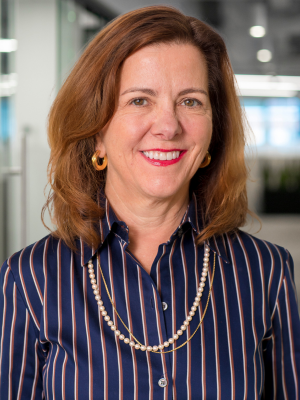 Susan Nickey, Executive Vice President and Chief Client Officer of leading climate investor HASI, is an agent for change. In her career, she’s learned that engaging directly but respectfully with detractors and designing fair, innovative solutions can lead to positive outcomes for both naysayers and pioneers.
Susan Nickey, Executive Vice President and Chief Client Officer of leading climate investor HASI, is an agent for change. In her career, she’s learned that engaging directly but respectfully with detractors and designing fair, innovative solutions can lead to positive outcomes for both naysayers and pioneers.
“When you’re trying to come up with a solution or break down a wall, it isn’t simply saying, ‘it needs to happen.’ You have to spend a lot of time thinking about creative solutions to make it work for an incumbent who might say ‘no, I don’t want that’, or ‘I’m not going to do that.’ It’s how you listen to both sides of an argument and come up with a creative solution. Thoughtfully parsed risk allocation, for example, can enable both parties to move forward in a way that they both deem is balanced and fair for them.”
Nickey cites the clean energy industry itself as a perfect example of how creating innovative change can bring significant, positive impacts. “I have spent my whole career in the clean energy industry, becoming passionate about the cause of making the environment cleaner. Working with people who share my passion only makes what I do more fulfilling. Every day, I wake up with the thought that I have an opportunity to make a difference.”
Finding Her Way to Making a Difference
From an early age, Nickey knew she wanted to make a difference. She recalls in elementary school her mother lecturing her that it was her obligation to “make the world a better place,” observing she was naturally talented. Although Nickey initially considered a career in medicine, her focus and interests migrated to pursue a career in global finance as a path to tackling “big international problems.” But it wasn’t until she met a business client of her father’s, a Swiss banker, who advised her to set a path forward and commit to it, that she started to set herself on a dedicated path to achieve her goals.
With a strong, early focus on languages and math, Nickey entered the University of Notre Dame, majoring in Finance and studying abroad for a year in France. She completed her formal education with a master’s degree from the Foreign Service School at Georgetown in International Business Diplomacy. After taking a position at ABN AMRO Bank and being accepted to join their first non-Dutch expat program, she was on the road to fulfilling her early dreams of a career in international finance. But an unexpected opportunity within ABN AMRO arose that changed her trajectory when she was offered the chance to join the Bank’s first energy-focused project finance group. Nickey remembers her boss at the time telling her that she should grab the opportunity to work in the U.S. power industry, foreseeing it would become a “game-changer.”
“I was assigned to lead alternative energy. I ended up being at the brink of the industry before ‘renewable’ was a common industry term and before wind or solar were even on the landscape – but we were on the cusp of what we now call the ‘renewable energy industry.’ Looking back at my early discussion with that Swiss banker, I frequently give that same advice to other people making career decisions. Namely, it’s important to set a course, to be on a path, and to show that you’re driven and that you know how to get places. But adding from my own experience, I also emphasize being open to pivoting along the way – to consider new opportunities that arise – and if it’s the right one, grab it. You never know where it will take you! And if you’re like me, the framing you developed in your early days will stay relevant in your new career chapter and can still bring you to where you set out to go originally on a different route.”
Since that pivotal decision to move to the alternative energy sector in 1988, Nickey has continued to build her career, earning several accolades and recognitions along the way. Among these awards are Tamarindo’s Wind Power List (2023), A Word About Wind’s (AWAW) North American Power List (2018-2022), AWAW’s Women’s Power List (2021), Environment+Energy Top 100 (2021), and The Cleanie Awards Woman of the Year (2020). Nickey also currently serves as chair of the board of the American Clean Power Association.
Becoming a Leader in the Clean Energy Industry
Being at the forefront of a new industry allowed Nickey to flex her creativity to develop solutions to the challenge of getting people on board with investing in new energy sources, which in the early days seemed cost prohibitive.
“I remember the early days when the consensus was that wind and solar would never be more than ‘alternative’ – and would only amount to 1% or 2% of our total energy mix because they were unaffordable. It was important to stand back and say, ‘how do we make it more affordable?’ And the solution was not just improving technology, but also driving innovation in financing structures and lowering the cost of capital for an energy industry with high upfront capital costs but harnesses an energy source which is free. If you believe like I do that we need renewable energy, that we need cleaner energy, we have to keep finding innovative solutions. Saying ‘No, this can’t work’ was not then and still is not an option for me.”
Learning to Work with Opposition
Nickey notes that she has been surprised by how you can change people’s approach or their entrenchment in an old model. Breakthroughs arrive by not only being persistent, but also by listening closely and mindfully, maintaining a rational mindset, and “meeting people where they are.”
“When you keep pushing forward and creating allies along the way and are not afraid to engage with detractors or people putting up walls, you can get great things done. I’ve been pleasantly surprised when the person I thought was an immovable opponent to something all of a sudden comes back and says, ‘Hey, it wasn’t about you. I’m really glad we got this done.’” She continues, “Everyone’s human and worthy of respect. If you can understand and acknowledge where they’re coming from – and find those points of common ground – great things can get done.”
Nickey credits her approach in part to her early master’s training at Georgetown. At the time, the program was led by Madeleine Albright and diplomats including Henry Kissinger would come to lecture. Learning from two great Secretaries of State, and other people during this time, the skills of the “art” of negotiation and diplomacy shaped her approach toward constructively dealing with opposition.
“You may not agree with everything but try to find a common ground and create some trust – establish a personal bond. With that, from my experience, I’ve solved and negotiated through my most intractable, unwieldy, and thorny situations.”
The Value of Mentors and Growing a Network
In her own life, Nickey prizes continued openness to learning and getting feedback from others. In talking about the value of mentorship, she notes that the gift of a true mentor is not only someone who gives good advice but also is willing to observe you closely, to see and to identify where there may be gaps. Nickey believes it is important to find people in one’s life who are willing to give candid feedback about strengths and weaknesses and are comfortable talking about personal opportunities for development.
“By yourself, it’s very difficult to see the whole picture of your life – how you come across to others in your business life, in your personal life. And looking back, the best mentors in my life were the ones that pushed me the hardest – the ones who prompted me to understand myself, then take my game to the next level. For me, that was the best career help I ever received.”
Going beyond individual mentorship, Nickey emphasizes the importance of leveraging a network of mentors, particularly as a woman, in energy or finance. “People get ahead or get in the door because they have mentors, sponsors, and networks. You still have to walk through that door each day and deliver yourself – being devoted to building a real network will prove invaluable to opening doors and creating opportunities. And now, where I am in my career, I’m surrounded by successful women at all levels. I have the opportunity to leverage that network and develop it to be even stronger than it has ever been.”
Collaboration is Key
Collaboration has been a key component of Nickey’s leadership approach, and it features strongly in her advice for women who are mid-career in their leadership journey.
“Respect everyone who is in the room with you. You have been asked to work on a multi-level team, be mindful not just of ‘the boss’, everyone in the room has ideas to bring and value to contribute. By listening to everyone, and respectfully communicating to everyone horizontally, not in silos, you will bring people together to drive forward whatever project or whatever collaboration you’re working on. Work to ensure everyone is engaged in a successful outcome.”
Nickey loves competitive sailing. She grew up sailing and racing and enjoys the opportunity to get back into competitive sailing now that she lives in an area on the water in Maryland.
“It’s very much a collaboration: learning how to speak to each other clearly and efficiently, being close enough to know what the other person is going to do, having a basis of trust that everyone’s going to do their part, and that if something starts going wrong, being confident to know how to pitch in and that the team will all come together. I realize I not only like sailing and racing because it is beautiful to be out on the water, but it is also very much a tactical intellectual sport to navigate the wind, the weather, and the waves. Best of all, it also reminds of the beauty of teamwork.”
By: Jessica Robaire

